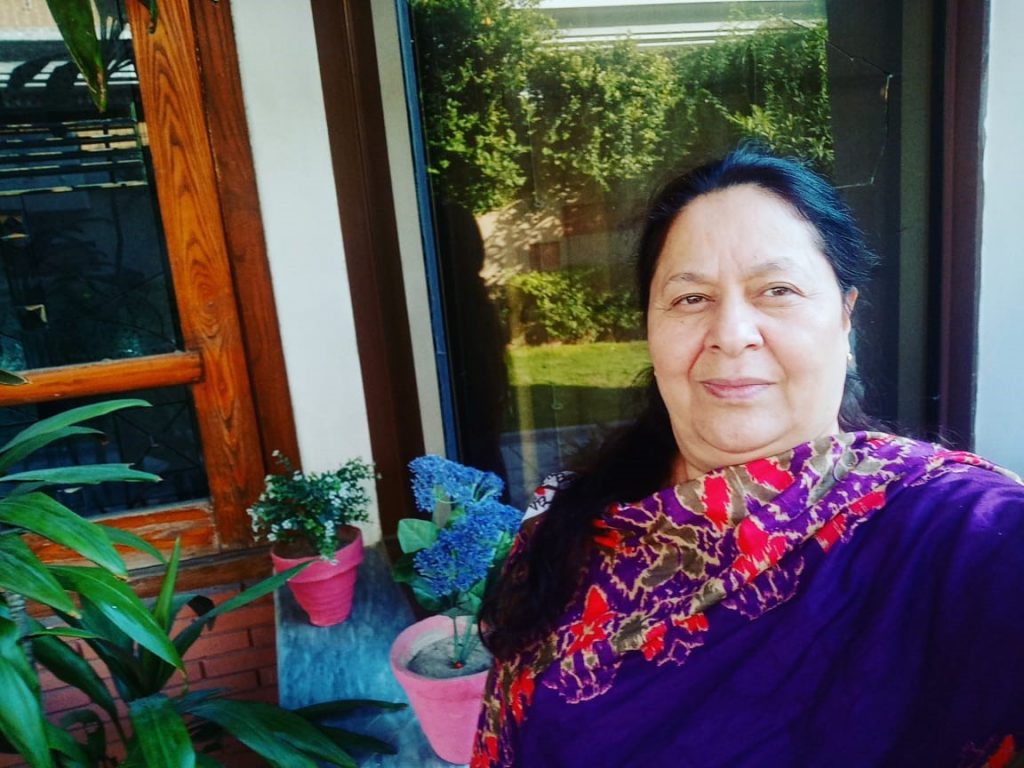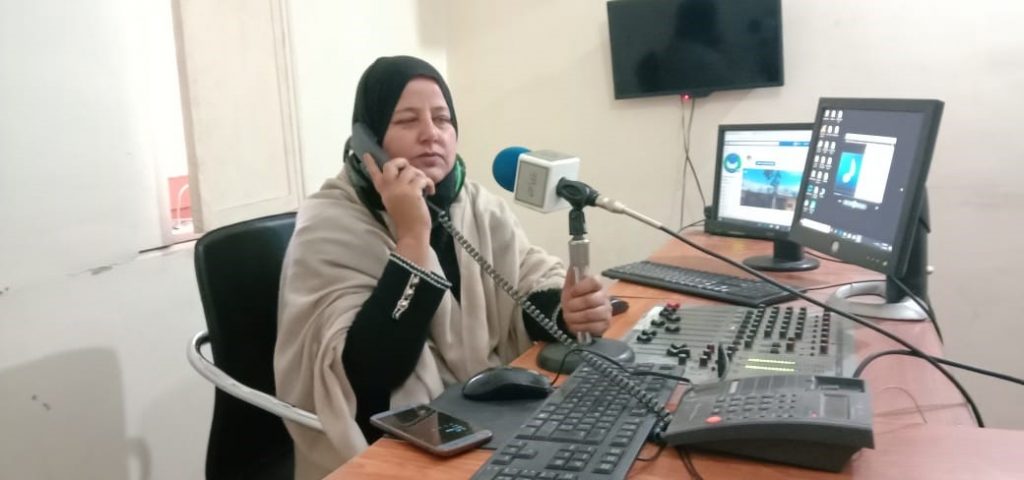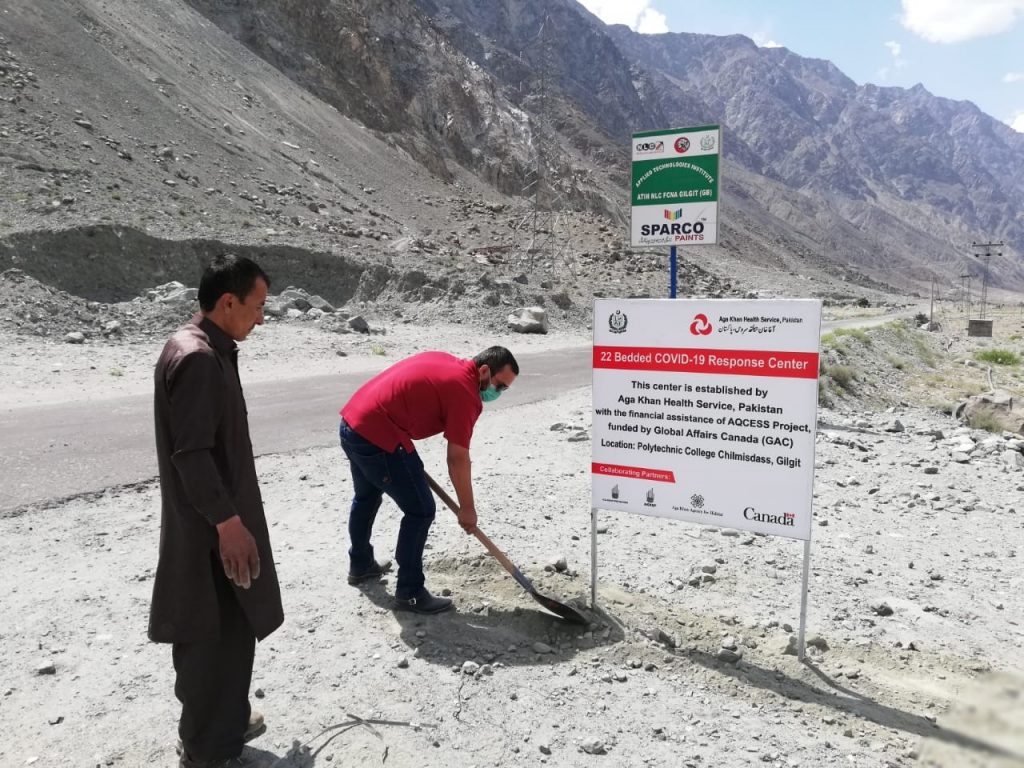While the landscape of northern Pakistan is a mountain trekker’s daydream, for those living in remote parts of this region, the terrain poses a daily challenge. It limits transportation, adding a layer of difficulty to everyday tasks: attending school, running a business, or accessing basic services like health care.
But even though northern Pakistan’s landscape may slow travel – or even halt it altogether in heavy rain or snow – it has not been enough to keep COVID-19 at bay.
“The first patient of COVID-19 was identified in Gilgit-Baltistan [province] in February 2020, who had recently visited Iran,” says Gul Anar Khan, a senior manager with Aga Khan Health Services in Pakistan. “From the very initial stage of the pandemic in my country and region it was felt necessary to raise awareness among the community to limit contact between people and check the spread of the virus.”

Gul manages a community health program in Gilgit-Baltistan.
Aga Khan Foundation established the Aga Khan Rural Support Programme in this region in the early 1980s, with funding from the Government of Canada. This longstanding relationship has built local trust, which helps people like Gul engage the community and dispel myths or misunderstandings about COVID-19.
Gul and her team have been working to educate the public about how the virus spreads, targeting key locations like banks. They have also worked with Aga Khan Education Services in the region to provide information about preventive measures and distribute hand sanitizers.

Zahra Batool is also raising awareness about preventing the spread of the virus, through her radio show in the city of Skardu, Gilgit-Baltistan. She has interviewed local leaders – including doctors, politicians, religious leaders, and disability advocates – about the virus and how the community should respond.
“Amid the social distancing, my radio program is a medium for people to connect,” she says. “I feel I am serving as a bridge, and connecting the disconnected.”
In addition to being a radio host, Zahra runs a business selling cosmetics and apparel. Her income has dropped significantly since the pandemic began.
Zahra says the lockdown has had the greatest impact on people who work for a daily wage, and women who run businesses from their homes or local markets.
Canadian support has been instrumental in establishing women-only markets in this region, which help women overcome social norms that prevent them from starting a business or shopping at markets frequented by men. These markets are now impacted by social distancing measures.
“There are about 10 women-only markets in Skardu city that were a livelihood source for more than 300 women and their respective households,” she says, adding that the decrease in commerce has also affected women who make a living by growing and selling fruit.
Far from Skardu, Muhammad Pasha manages the local support organization, in the remote valley of Basha. He says that people in his valley were not worried about the disease, because a lack of internet and cell phone service means they are cut off from information about the rest of the world.
“Almost all the people are farmers and they have little or no access to information about the happenings in the country and around the globe,” he says, adding that gender barriers in the region make it especially hard for women to access information.

Muhammad spearheaded an awareness campaign in Basha valley, which included broadcasting public announcements from a speaker on the back of a motorcycle and engaging female social mobilizers to reach women in the community.
His campaign has support from an Aga Khan Foundation Canada program, funded by the Government of Canada, that focuses on improving the health of women, adolescents, and girls. Since the pandemic began, this program has expanded to respond to the virus, by providing water and sanitation services, supplying beds and personal protective equipment, and establishing facilities to treat COVID-19 patients.

But none of this work would be possible without the local leadership and knowledge of people like Muhammad.
“Being a community leader and an educated member of my community, I felt that something has to be done to prevent this disease spreading in Basha valley,” he says. “Stay home, stay safe’ is the need of the hour.”
Financial support:

